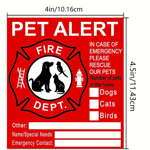FREE: 4 ounces Catgrass Oatseed Natural Oats

A member of Listia gave this away for free!
Do you want FREE stuff like this?
Listia is 100% Free to use
Over 100,000 items are FREE on Listia
Declutter your home & save money

"Listia is like EBay, except everything is free" - Los Angeles Times

"An Awesome Way To Give And Get Free Stuff" - Michael Arrington, TechCrunch
This Stuff is Free Too:

FREE

FREE

FREE

FREE

FREE
The listing, 4 ounces Catgrass Oatseed Natural Oats has ended.
Why does your cat eat plants or grass? Although cats are consummate carnivores, they do crave a bit of greenery now and again. Even wild cats nibble grass blades as a between mouse snack. There is no known nutritional explanation for this behavior, although some experts suspect that cats are attracted to the high-fiber and moisture content of grass.Whatever its purpose, "grazing" seems to be a natural feline behavior, so you should consider providing your cat with its own batch of healthy grass. Your cat will then be able to satisfy its "green tooth" without munching on your (potentially toxic) houseplants or eating lawn grass that may be tainted with pesticides or fertilizers. Many believe oat grass will aid in digestion, but maybe they just like a little kitty salad. This also will not irritate the back of a cat's throat and tongue like serrated lawn grass or wild outdoor grasses do.
Good for cats, kittens, dogs, puppies, birds, parrots, parakeets, budgies, hamsters, rabbits, ferrets, chinchillas, squirrels, guinea pigs and other small pets.
GROWING INSTRUCTIONS:
Choose a shallow pot so your pet has easy access. Fill the pot with sterilized packaged potting soil, leaving some space around the edge for watering. Moisten the soil, then sprinkle the grass seeds on it. Lightly cover the seeds with soil.
Potted grass will grow best in a sunny area, but remember to water it often so the soil doesn't dry out. In 3-4 days the grass should be ready to give to your cat. Keep 2 or 3 trays rotated so your cat always has some fresh oats growing.
4 ounces Catgrass Oatseed Natural Oats is in the Pet | Other Pet Items category

